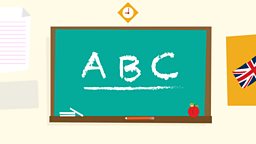The 500 Words Blog: Written By You
The Power of Stories
Imagination, books and stories are tickets out to the wider world when you’re a kid in hospital.

Despite being faced with challenging circumstances in their education, students at our school make the most of their learning opportunities and were excited to take part in the 500 words competition.Lauren Williams, Teacher, Oxfordshire Hospital School
Writing can be difficult for many people of different ages and backgrounds; anyone can encounter the dreaded ‘writer’s block!’ The endless opportunities your imagination offers provide a rich source of inspiration but deciding on a final idea can be tricky. Do you set your story in the vast undiscovered galaxy far, far away? Or the vibrant Lego City, with its perilously high skyscrapers? Then, of course, there are characters to create. A lonely sock who becomes separated from his partner during a treacherous trip in the washing machine? Or a half boy, half dog 12 year old who finds himself alone on planet Bark? Decisions, decisions!
These are just some of the brilliant ideas created by talented young writers at the Oxfordshire Hospital School. Despite being faced with challenging circumstances in their education, students at our school make the most of their learning opportunities and were excited to take part in the 500 words competition. As you can see from the above examples, they have written some very imaginative stories with gripping twists and turns that leave the reader on the edge of their seat from start to finish!
Some of our students may be unable to attend their home schools for a significant period of time; they might be in hospital or being taught at home. Taking part in a national competition such as this reminds them that they are still very much a valued member of the school community and have the same opportunities to be creative as their peers. We’re working with children’s charity, Readathon (who already ensure we get a steady supply of brand new books and storyteller visits) to give goody bags to all our children who’ve taken part. William, 5, even recorded his story on the Hospital radio, Radio Cherwell and added his own sound effects to really add to the excitement!
We feel very proud of our students and their achievements in the 500 words competition; writing a story can be challenging enough but they have done a brilliant job despite being faced with difficult situations.
by Lauren Williams, Teacher, Oxfordshire Hospital School
Alphablog: Invent Words Like Shakespeare
Hello everyone! Beep beep boop beep.

Shakespeare invented lots of words we still use todayAlphabot
500 Words is back and that means lots more words. I’m very excited. Are you all busy writing? Don’t worry if you haven’t got any ideas yet. I can help you!
This year, the final is at Shakespeare's Globe Theatre, the home of famous playwright.
Like me, Shakespeare loved words! In his longest play Hamlet, he used almost 30,000 words.
You might not know that Shakespeare invented lots of words we still use today. That means those words are over 400 years old. Wo-o-o-o-w!
Here are five of my favourite Shakespearean words:
Fairyland
Leaky
Majestic
Stealthy
Tranquil
What story could you make from those?
Good luck everyone! Now, I’m going to have a bowl of alphabotti spaghetti…
Alphablog: How To End Your Story
Hello everyone!

Don’t worry if you don’t know how to finish your storyAlphabot
I’m here to remind you to send your stories in. You haven’t got long!
Don’t worry if you don’t know how to finish your story. It’s always hard to know what word to end on.
Shakespeare used thousands of words in his plays but even he had to write a final line. He wrote 37 plays so that’s 37 endings. He must have had to think very hard about what to write!
Here is a list of some of Shakespeare’s final words. Can you guess which play they’re from?
1. Amends
2. Hearts
3. Another
4. Free
5. Shoot
The answers are:
1. A Midsummer Night’s Dream
2. All’s Well That Ends Well
3. Comedy of Errors
4. The Tempest
5. Hamlet
Did you get any of those right?
I hope they help you to finish your story. If you need more inspiration, go to my page and click my tummy and I will help generate some words.
Good luck all! Don’t forget to send your stories in!
Winning 500 Words was EPIC! It was a day I will never forget. Ever. I met so many people that I admire. It gave me so many special memories.
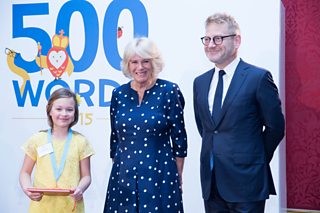
I have so many fantastic memories of that morning. I bounced on my bed a lot for days afterwards.Sofia
The strange thing is, I had tried to enter my story the year before but I missed the deadline by about 20 seconds! 20 seconds!! It was horrible. I was so upset. All that time and effort wasted. Well, that’s what I thought. Looking back, I don’t think I would have even been a finalist this year if I hadn’t made my story better after missing the deadline. Anyway, even if it had won the first time, I wouldn’t have got the chance to go to St James’ Palace or meet the Duchess of Cornwall.
Very early that morning a coach (not the Cinderella type) took us to the palace. It felt a bit like Christmas morning. We were taken to this huge, beautiful pink and gold room. Delicious things to eat were served on silver trays and all the finalists just mingled excitedly with the judges and celebrities. I was too excited to eat much but my Mum tried everything.
I shot over to Malorie Blackman as soon as I saw her. Malorie’s writing is incredible. I actually chatted to her. That alone was awesome and I didn’t even know that I was a winner then. She was so friendly and encouraging. Just like I thought she’d be.
When Sir Kenneth called out my name I was stunned. Things like this don’t really happen in real life-but that day it did to me. My story was read aloud by a real-life knight, Sir Kenneth Branagh. So cool. I remember that my Mum could barely speak.
The Duchess presented me with a gold medal and my story printed in a book. Beyond cool! She was really nice, by the way. I had to stop myself from jumping up and down when she told me that she loved my story.
I met so many talented people. I saw how a radio show is made and was part of it. I watched the Vamps sing and Will Young listened to my story and then he even made a joke about it. Francesca Simon and Charlie Higson told me what they liked about my story. I was beaming. It all made me feel like a real author. I think that was one of the best things about winning. I knew that brilliant writers had read my story and thought it was good. They liked my idea and I love thinking up ideas so it meant so much to me.
It was inspiring. I’m not exaggerating. I have so many fantastic memories of that morning. I bounced on my bed a lot for days afterwards. I don’t think I’ll ever want to stop writing down my ideas.
If you’ve got an idea for a story but are not sure if you should go for it, you should. Don’t miss the deadline. Because you never know..
By Sofia Zambuto
When my name was called out by Jeremy Irons, I sat there in utter shock and disbelief, with crazy-happy thoughts crowding into my mind. You’ve won this! You’ve won the competition that four years ago you never thought you’d win! I started to cry. Tears flooded down my face - I’m not usually so emotional! I got up and walked towards the stage, preparing myself receive the medal from the Duchess of Cornwall. The audience clapped and cheered. As I approached Camilla, she smiled at me and I instantly relaxed. My nerves disappeared and I began to enjoy what was happening. Then, for a few minutes, as my story was being read out so well by Jeremy Irons, my mind started to clear and I felt so proud. He was the best reader I had ever heard, and as an actress myself, he taught me a lot. I loved the way he pronounced the words- making them sounds 10 times better than they did in my mind when I wrote!
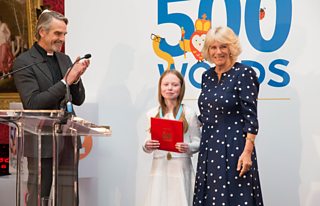
I suppose you could say that winning 500 Words has completely changed my life.Amabel
I thought about my mum sat next to me, and my dad and sister, listening in the hotel room, and my family and friends at home. I was so happy. I introduced the next part of the show while Chris Evans told the entire nation that I was crying- thanks Chris!
However, when the radio show ended, I still had an exciting day ahead of me. I took part in many interviews and appeared on many television shows such as Newsround ( I always love to watch the show, so to be on it was like a dream) and The One Show (also an amazing experience that I will never forget). The other finalists and winners were also amazing people, me and another finalist are actually great friends now; as we ended going to the same high school!
A few weeks later, I arrived home from school to a very excited mum, "Amabel, guess what has just arrived!" She brought out a giant cardboard box and let me open it. It was my prize, Chris Evans' height in books! I instantly started piling up the books so I could see how tall Chris Evans was (even though I had met him before). However, they all fell down so I decided to start reading. I reached out, opened up the first book and started to read, but I couldn't really concentrate because my cousin and sister had decided to play “row your boat” inside the cardboard box.
Pretty soon, a gargantuan box arrived at the main entrance of my primary school. I looked inside; it was at least 500 books! We piled and packed every shelf, but there was just too many. I, my friends and the teachers packed the remaining books into a box and sent them off to my high school. Now they stand proudly on their very own stand in the library- and every time I look at them I'm filled with immense pride.
I suppose you could say that winning 500 Words has completely changed my life. Not just in writing though - acting too. Before the competition, whenever I was in a show I would laugh because I was nervous. 500 Words boosted my confidence and showed me that I can achieve anything when I put my mind to it.
To conclude, winning 500 words was one of the most amazing experiences of my entire life. Whenever I look back on the day of the final, I am put in a good and creative mood all day.
I really recommend that others should enter 500 words. Even if you don't win, you should always try. Each year you will progress and progress and learn from your mistakes; just like I did. If I hadn't entered when I was just seven, I would never have made it this far as I would never have learnt from my mistakes.
Finally, I would like to thank the entire crew that organized the 500 words competition, without them one of the best days of my life wouldn't have happened!
By Amabel Smith
My experience of the 500 words competition was amazing. The first thing I had to do was write the story. My story was called Cake Wars. Before writing the story I had to plan it. It was very difficult thinking of ideas of how to destroy cakes, describe the story and the old ladies. I thought of familiar subjects and how to put a twist on them. I loved doing it.
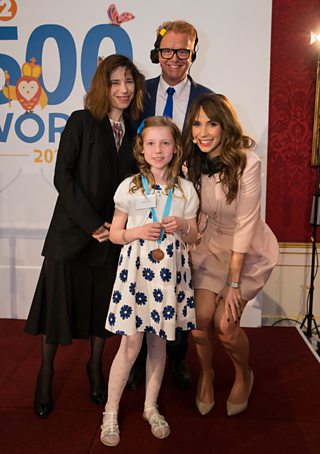
I was handed my own published book with my story in and my name on in gold letters, and a bronze medal with my name onEmily
Next, I wrote story in a draft. So I took the ideas from my plan and made them into full sentences. After that I edited it, changing the words and making my work better. This was the hardest part! Then, after reading through it, I sent it off. I was scared!
Weeks after I found out! I was in the second round. I jumped for joy!
I found out I was in final when my mum showed me my story on the internet. At first I didn’t understand why they had recorded my story, but then I read the email that said I had made the final fifty and I could go to St. James’s Palace and meet The Duchess of Cornwall, Chris Evans and lots of celebrities!
The final was getting closer, and it started to sink in. I got really excited! We had to go clothes shopping and I had a buy a posh dress.
I got to St. James's palace. It was beautiful, with huge paintings of men on horses! Also we saw a room full of weapons decorating the walls. After we sat down we had fun as Chris Evans made us laugh as we rehearsed. It made me feel excited and less nervous.
During the final I had an amazing time, but I did not expect to win. When Sally Hawkins said my name I felt really surprised and extremely happy. I had small interview with Alex Jones asking me how I felt - I felt really shy and then Sally Hawkins read out my story. During Sally’s reading of the story I was happy to hear people laughing at my work. Sally did the voices of the old ladies and everyone laughed and cheered. I felt really proud of myself. Sally read it really well and she made it sound like we were really at the village fete.
When I shyly went onto stage, I was handed my own published book with my story in and my name on in gold letters, and a bronze medal with my name on. Everyone clapped and cheered and my mum was clapping and smiling like she had won a million pounds.
I loved the experience. When I got home I found a huge box of books the same height as me! I will always remember it and I am writing another story right now!
Daring To Deal With Dyslexia
I remember the day I found out. At first it was quite exciting really, I had the time off school and when you’re twelve, that always feels like a treat. We drove miles to a grand old building, the rooms were big and the people there looked very clever, they made me read out loud, do spelling tests and they gave me biscuits. An hour later they told me that I was dyslexic. On the way home we stopped off at a pub for scampi and chips, because it was the 1980s and everyone had scampi back then and we talked about what this all meant. I felt daunted by the whole thing, I felt different and a little embarrassed. That’s how I felt for years afterwards too; I got called lazy and stupid, so I stayed away from words, they were no friends of mine. But then something changed. I finally figured out that being able to spell correctly has nothing to do with being a good writer, it’s about having something to say.

being dyslexic is actually like being a member of a very exclusive clubTom McLaughlin
The way I see it is that being dyslexic is actually like being a member of a very exclusive club. You should embrace it rather than be afraid of it. If anyone comes at your work with a red pen, take it off them, chuck it out of the window and tell them they can have it back when they’ve actually read what you’ve written - tell them to see the story, not look for mistakes.
Day-to-day my dyslexia comes and goes, sometimes I can’t spell the simplest of words that I was fine with yesterday. So some days I draw stories instead. Comic strips are a great way to write without words. Poetry’s brilliant too, because it gives you a structure to work to. It’s like having the foundations and all you have to do is add the walls and roof. I know what you’re thinking, poetry’s lame, but if someone as hip and street as me likes it, it must be cool - right?
Never be afraid to talk about being dyslexic. People are really interested. It also helps you feel comfortable about who you are and what you have. Take the time to look it up on the internet, see what it means to be dyslexic. You should never be afraid to get things wrong, or getting mixed up. I’m going to say something that’ll shock you now, teachers are actually nice people. They just want to help. Be nice to them and they’ll look after you. If you find reading hard - like me, look elsewhere for stories, audiobooks, podcasts, they’re just sat there waiting for you. Being dyslexic should never be an excuse for not being a writer. Being dyslexic means you having a brain that works differently to everyone else and being different is never a bad thing. Being dyslexic is who you are, and who you are is amazing - so stop reading this and go write your 500 words!
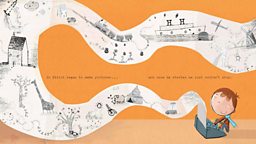
Eight and a half years of bedtime reading...
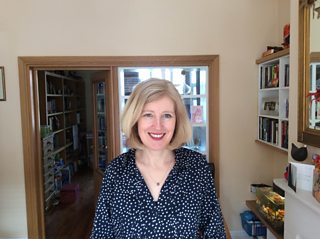
Bath, book, bed. That’s the mantra in our house.Kim Shepherd
Bath, book, bed. That’s the mantra in our house. We have twin boys, and ever since they were tiny, evenings have been the same. We pile on the bed together to read a selection of books, magazines, football programmes, anything with words that takes our fancy. If you’ve ever read It’s a Book by Lane Smith you will get a flavour of how much books mean to us. The boys are very different; one has global developmental delay, the other could recite whole stories -The Avocado Baby was an early favourite - from a young age. So we have always tried to make it a special time for each of them and a happy half hour for the family. It’s something that they look forward to every day.
If we read the microwave instructions to one of our boys, making it into a story with his brother and him as the main characters, he would be happy – and probably want the same thing again the following night. Here is a child who tends to have a particular book that he likes for weeks on end. That's fine if it's a story we all like, The Tiger who came to Tea, or Mrs Wobble the Waitress, for example. But it can be hard to get excited about reading the programme notes from Manchester United V Leicester City (31st January) for the twentieth time. So we have developed a number of sneaky tricks. We have ‘lucky dip’ where we close our eyes and choose a page at random to talk about. We make silly mistakes as we read aloud and see if he spots them. We leave sentences dangling, and see if he remembers the last word or phrase. We make up a new ending and see if he notices. Experimenting with regional dialects has been popular, although our efforts are apparently not as impressive now as when the boys were younger and less discerning.
Our other son enjoyed looking for ducks in every picture when he was tiny. Nowadays he is more likely to look for his favourite doodle in a Tom Gates or Wimpy Kid book then practise bubble writing in bed that night. He used to like having a quiz at the end of a Thomas the Tank Engine story, whereas now the questions are more likely to be about Greek legends or natural disasters.
Reading different things has meant that we are getting better at answering questions on TV quizzes. We sit together and one son shouts, “Your time starts – NOW!” If the subject is Greek mythology, our other son now has a number of possible characters at his fingertips, but Zeus can’t be the answer every time, so I think he’ll be moving onto Roman mythology and Shakespeare soon. We will beat those Eggheads and Chasers - if we keep reading.
Times change, children grow, our patience wanes, but ‘bath, book, bed’ remains. I wonder whether we’ll manage another eight years? We might need a bigger bed.
By Kim Shepherd, 500 Words Round 1 Judge

Steven Butler: writer of the new 'Dennis the Menace Diaries' series.
When I'm writing my "The Diary Of Dennis The Menace" books, I like to pretend that I'm him. It helps that I have a bit of a rampageous sense of humour so it's not too difficult, but I like to imagine how Dennis would react to something, or what he might be in the mood to do or say. I even read aloud in his voice to check certain pages sound right.

I always think it's a good idea to try and get into the heads of your characters. After all, the more you know about them, the more you can have fun putting them through sticky situations and twisty plot-lines.
Marcus Sedgwick: author of 'Floodland' and 'The Dark Horse'

My main tip is to ignore writing tips, because everyone works differently and it’s very easy to feel intimidated by hearing how other people work. Do what feels right to you, and it almost certainly will be. – Marcus Sedgwick
Jonny Duddle: author and illustrator of 'The Pirates Next Door'
All my stories start off in my sketchbooks, and may begin life as one sentence, a couple of lines of verse or often just a doodle of a character. With my picture books, most of the writing takes place in my head, on long walks and train journeys and this is where a sketchbook (or notebook) is invaluable. I've had loads of amazing ideas for stories but so many of them have disappeared into the depths of my terrible memory. If I have my sketchbook with me, I can jot and idea down right away.
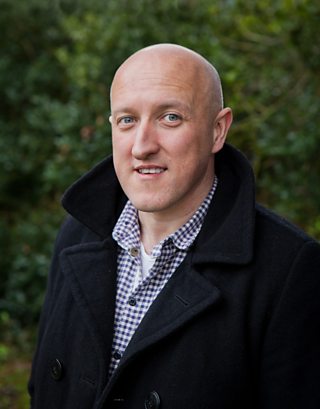
Memories and experiences inspire my storiesJonny Duddle
Memories and experiences inspire my stories. My first book, 'The Pirate Cruncher', was inspired by my time as a square-rig sailor, after I found all the old photos of the ship I'd once lived on. But I wrote the story fifteen years after my life as a pirate, whilst working as an artist for computer games. The idea for the 'Pirates Next Door' appeared on a train journey back from my publishers who'd asked if I had any more pirate stories. It was inspired by the name of my art director, Mike Jolley, along with my family's imminent move back to my childhood home in Wales. My latest picture book, 'Gigantosaurus' was inspired by drawings I made on a trip to the Natural History Museum, but was written on holiday in Majorca a few months later. I started writing on the beach, but then stomped off to our apartment in a huff, because my 2-year-old daughter kept scribbling over my notes. So the story was written whilst munching bread, cheese and olives, with a view of the sea. Then it took me six months to do all the doodling and colouring-in.
Holly Smale: author of 'Geek Girl', the UK's biggest selling teen series.
Tip 1

the most original thing you have to bring to the table is youHolly Smale
Unless you’re carving your story into stone, don’t be scared of making a mistake. Have fun, experiment with ideas and voices, be brave: you can always edit it (or throw it out of a window) afterwards.
Tip 2
Every story has been told already, so the most original thing you have to bring to the table is you. Show personality in your writing: if you’re enjoying it, the reader probably will too.
One of the hardest things in any task is where to start, and ideas for a story are no exception! My greatest advice for inspiring children to write is simple: read. Delving into worlds created by others and living lives with characters who come to feel like friends can only help us create our own.
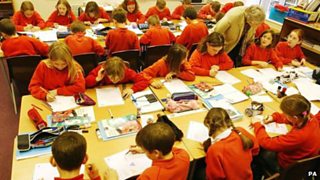
Many teachers will know that heart-sinking feeling when their students ask the question ‘how much do we have to write?’Emma Harris
New, original ideas come from those things that spark our imagination; that make us think. If you are working with a child who struggles to instantly deliver a complete plot, try prompting them with pictures that offer intrigue and make them question what is happening. Or my personal favourite tip: people watching. Do people walking down the street ever catch your attention? Who are they? Where are they going? What is happening in their life? Build the story around them.
When it comes to working with children to create stories, technical knowledge can help get their head around what a story should be. A plot needs to be formed, one with a clear beginning, climax and satisfactory ending, particularly when only using 500 words. Experiment in your classroom with perspective, tense and their effects. Play around with sentence structure, noun phrases and showing how a character is feeling rather than simply stating it. Every teacher wants to see a student develop a story with enthusiasm and motivation, so let a child own their work.
As teachers we wouldn’t often encourage competition between pupils, but the great thing about 500 Words is that it’s bigger than the classroom. Old rivalries, insecurities and experiences don’t matter and every single member of the class can enter as equals. The competition also provides a real purpose for writing. It will be read by someone other than their teacher – it could be heard by thousands. Their stories won’t just be forgotten about in an exercise book; their audience is real and huge. This is the motivation pupils need and an opportunity teachers seek.
Many teachers will know that heart-sinking feeling when their students ask the question ‘how much do we have to write?’. 500 Words is a manageable limit, the goal is clearly in sight and is one which can sustain the students’ focus. Most entrants do become obsessive about checking word counts. But this isn’t a bad thing! Often this means that they are forced to read and re-read their work to check its accuracy and make it the best piece of work possible. This dedication to drafting and editing work develops independence as a writer that teachers have been trying to encourage for years.
By Emma Harris, teacher and 500 Words volunteer judge

Do you have specific learning difficulty (SPLD) that can make it difficult to organise and record your ideas in words on paper? If your answer is yes, then you are in good company. The award winning children’s author Sally Gardner has openly discussed how she found reading and writing in school very difficult but found a different way of capturing and organising her imaginings so that she could share them with others. You too may need to look for a different way, but that’s ok! ‘Different’ is good when it ensures you can tell others your story.

Often individuals with a SPLD will be strong visual learnersThe Dyscovery Centre
Ok close your eyes, can you see or hear yourself telling the tale? Often individuals with a SPLD will be strong visual learners and will find it easier to capture and order their ideas in picture format.
Storyboards
Many film makers use storyboards where they plot the storyline of the film as a series of individual frames (like boxes). This allows them to move and by rearranging the frames until they capture the order they want the beginning, middle and end of the story becomes clear. Having organised your plot you can begin to add the detail. This can also be done on paper; pull out key things (such as key characters) and draw or label the detail you wish to include.
Now think about sharing your pictures with others, as the more you tell the story, the more it will become clear. Don’t forget of course to record it on your phone or Ipad so you can hear the version you wish to type up later.
Word mapping
Some of you may prefer to capture and record your ideas in words. Take a blank piece of paper and in the centre write down the main topic of your story e.g. THE VISITOR. Now surround it with key words that come to mind when picturing it e.g. descriptive words about the scenery. You can now begin to pick out and group the words that describe a theme within your story and link them together with a line or a highlight colour. Once you have organised your themes think about the order in which they will appear e.g. will you describe the scene before your main character?
Use your listening friend to start to link the story together until you are happy with the way it sounds – don’t forget to record it!
Because you have done this preparation it should now be easier to get it down on paper. Don’t forget most authors will have someone else to check their spelling or type the story for them. You can do the same, you are not asking them to alter or write the story just to help to record it in a way that others can read it. Remember, the competition is open to everyone; they want to hear your story. You will enter your 500 words story online alongside all the other competitors but only you will know how you got there.
Good luck!

Fostering The Imagination Of A Nation by Stephanie Diamond.
Reports of thought bubble sightings across the UK have been confirmed! Children have become infected with excitement and creativity as Chris Evans’ 500 Words competition spreads across the nation. Thousands of cases have been reported nationwide and volunteers are working hard to help young people capture them before they disappear.

"Stories are an incredibly powerful tool"Stephanie Diamond
So what are they? Thought bubbles are vessels for the pictures we make up using our imagination. These pictures can make us go ‘WOW!’ or ‘EEK!’ or even ‘AAARGH!’, they can make us laugh and they can sometimes make us cry! All children (and grown-ups too!) have hundreds of thought bubbles that are waiting to be filled up and set free in the form of a story.
Sadly not all thought bubbles are magical or happy. I have worked with children in care for 12 years and have experienced first-hand the amount of emotional damage, lack of self-confidence and behavioural struggles which affect children in foster care, through no fault of their own. To support these children we have a cohesive team of foster parents, therapists, social workers, and external professionals who all work together to facilitate a safe and nurturing care environment.
During the holidays we organise fun activities including workshops where young people come together to write about their feelings and their lives, to make music or even make pictures from nature. We actively seek to give young people in care a voice and to support them, even after they leave care, in practical ways and in speaking out to make a difference. Stories are an incredibly powerful tool, especially with the children I work with. The ability to verbalise the images in their heads gives them a chance to be heard, maybe a chance to make a difference. Story telling provides a safe vehicle for young people to use imaginary characters to express their experiences and view of the world, which may otherwise be difficult to communicate.
One of our young people I worked with was aged 7. He’d had a tough start in life and was unable to read or write. He had no self-confidence but he did have an amazing imagination which saw us playing spies, dodging amongst the blue rinse ladies of a certain age playing golf or drumming along with imaginary seaside bands amongst the sand and rock pools on the shore. One day he remarked, “I’d love to ride on the back of a butterfly”. I could have benignly smiled and merely acknowledged his comment, but I didn’t. I explored his idea with him, was curious about where they would go and what they would do. He shared his thought bubbles and built up an amazing story where they fluttered off, seeing many different things before finally they landed at the top of the world! Once there they both danced and laughed before returning home. It was exciting and exhilarating and a world free from his troubles. Every time we went out he made up stories and can now read and write and draw brilliant pictures.
When our children make imaginary comments we encourage the listener or reader to be curious, to be excited, to enter their imaginary world and travel with them on their imaginary journey. Before you know it, you will have helped them build their story and release their thought bubbles. It can be fun, innovating and inspiring. It is this creative process that young people find aspirations and dreams to follow.
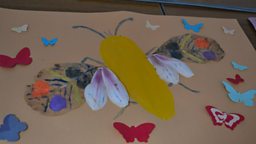
Young And Published
Helena Coggan, aged just 15, whose debut novel was published last week, tells us why your 500 words could be the best you ever write.
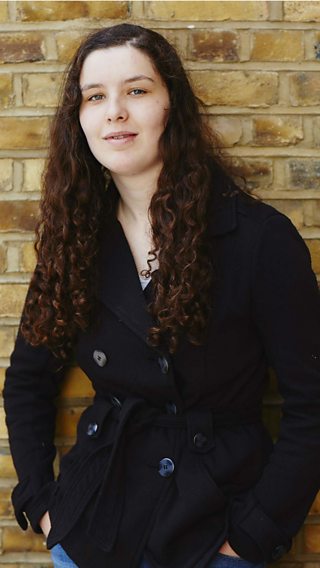
The first five hundred that you have in you can be enough to spark the best story you will ever write.Helena Coggan
I’ve loved writing for as long as I can remember. Or, more accurately, I loved stories: I would make them up in playgrounds and classrooms, and scribble them down to stop myself forgetting them. I listened to audiobooks, radio programmes, anywhere I could find magic: dragons and conquered lands, vigilantes and heroes. I was a bookworm, and therefore writing a book myself – one day, far in the future – was a natural dream.
So I began to write short stories. Small pieces – fragments – which I could write, go over and correct until they were readable. The vast majority of them came to nothing, as I had expected, but most of the time just writing them was enough. I would ask someone to look at them to see if they were any good, and if they provoked no particular reaction I would simply store them away, and work on new ones. I was spectacularly inefficient – I still am – but it didn’t matter. Writing was what I loved, and the less efficient I was, the more time I got to spend writing.
I entered children’s writing competitions, just to see if anything happened. I tried to learn from every entry: which were too long or short, simple or complex, melodramatic or implausible. Then I would keep writing. A long story, I reasoned, was just a more developed version of a short one, and I had written a lot of short ones. I must have tried out dozens of ideas in those attempts, hundreds of characters. They all burnt out after a few pages. I could never think of an ending, so the stories had nowhere to go. I kept trying. I was never expecting anything full-length to emerge, but I tried anyway; I had nothing to lose, after all.
But just to make sure I didn’t give up, I made myself a promise when I was ten: to write a full-length story before I turned thirteen. I never imagined being able to keep that promise; and indeed, I didn’t. It was motivation, I knew, not commitment.
But as the birthdays passed – eleven, and then twelve – I knew I was was running out of time to keep the promise. The flow of writing slowed once I started secondary school. I wasn’t trying as hard as I would need to if I was to have a shot at a full-length story.
I turned thirteen, and the promise expired. Fine. I would try again. I knew I had almost no chance of being able to do it; but if I didn’t try at all, I would have no chance. I had the rudiments of a plot, the bases of characters, the skeleton of a premise from all of that time not-quite-trying.
So I sat down and wrote them.
All the old attempts came together and unfolded. All those entries and short stories, and every lesson learned from them, was poured into the story that became the book. Five hundred words became five thousand, and then fifty thousand, and then a hundred thousand, and slowly the short story became a long one. But the first five hundred were the most important, because they were what it took to remind me of what I had always known: I loved stories. The first five hundred that you have in you can be enough to spark the best story you will ever write.
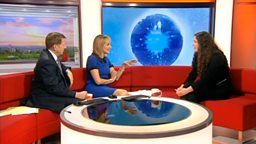
Winning Words From A Golden Girl
It has almost been a year since I made the decision to send off my 500 word story to the competition in 2014. I can honestly say my life would be very different if I had not done so. The whole experience has been a whirlwind; it keeps taking unexpected twists and just keeps on giving.
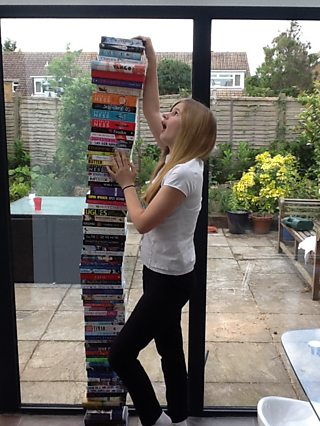
When Paloma Faith read out my name, the world stopped for a moment.Susannah Ames
I googled the 500 word story competition, which I was vaguely aware of. Not thinking too much of it, I wrote a story, redrafted it once or twice but I didn’t want to get hung up on the tiny details. A story is about the overall impact, not about whether you’ve started each sentence with an opener, or popped in a ‘WOW word’. That’s why I didn’t redraft constantly; I wanted the story to keep its original rawness, so to speak. To me, that’s the best advice I can honestly give. Write what you want; write how you write, not how everyone else says you should write. Be creative, no idea is too wild.
Off my story went to a librarian or English teacher. I would love to meet the person who put it through to the second round. All I can say is thank you, thank you so much. When my mum got the email telling me I was through to the last 3500, it was just incredible. It had been about a month since I’d sent off my story, it had slipped my mind. But still, winning seemed like an unachievable goal, a distant dream. Not something realistic anyway. And that’s the point where my calculator came out, me desperately trying to calculate what percentage had got through. 120,000 people entered, and 3500 remain. It was a moment I was, and still am incredibly proud of.
Even that pales in comparison to when you find you’re in the last 25 for your age group. Even writing this, I just wish I could go back and relive that moment, I still get a flutter in my stomach. I distinctly remember screaming I was so happy, and wanting to tell everyone, but I couldn’t for a day or two, until the story went up on the website. My biggest fear was there had been an administration error, and I hadn’t actually got through!
Then I’m going to skip forward to May 30th. After flying in, just finishing a holiday in Copenhagen, it was straight off to Wales. I can honestly say, that is the first time it really hit me. I was here. Wow. Silver was my aim. That to me was so unlikely, but it was a dream, and we all have them. Not once did I actually believe I had a chance, especially after reading all the other incredible stories.
When I didn’t win Silver, or even Bronze, I had that disappointed feeling. But my mum was sitting next to me, telling me how it was okay I didn’t win and I’d still done well, the usual comforting mum words.
When Paloma Faith read out my name, the world stopped for a moment. I froze, not quite believing it. It’s like all these emotions just hit you, but for a second everything is silent. You go up onto the stage, and everyone’s clapping and cheering, and you can’t quite comprehend it’s you up there, you winning this coveted prize out of so many sensational entries.
500 words changed my life. It’s something I will never forget, and even now I can still feel how it felt to win, to even be a part of it all. That’s my 500 word story.
What’s yours?

Hello everyone!

I was a librarian judge in the 2014 and 2013 competitionsLiz Ryan
I was a librarian judge in the 2014 and 2013 competitions and I decided to write this to let you know what I gave the highest marks to in those previous competitions.
STORY PLOT AND STORY CHARACTERS
Plot is what goes on in your story and characters are the people in your story. Use these to make your story stand out and you should get very good marks.
Is your story about a horrible teacher who everyone hates? Is it about cowboys or fairies or even rabbits? (Don’t laugh – there’s a book called Watership Down in which all the characters were rabbits and that sold millions!)
Then, put your characters in situations that will bring them to life. I’ll give you some examples;
• Is the horrible teacher in charge of Sports Day?
• Are the cowboys arguing over a horse at the rodeo? Or have they lost their horses?
• Are the fairies a group of good fairies with one bad fairy who casts a horrible curse on a new baby? (Actually, don’t do this one, it’s been done before and it’s called Sleeping Beauty but you get the idea.)
One word of warning though. If your story about a horrible teacher is based around your horrible teacher or a horrible teacher you know, don’t, please don’t and just DON’T use his or her real name! Just take inspiration from them!
DESCRIPTION IN YOUR STORYTELLING
Now this one’s tricky. You know how important it is to use variety in your language and not to bore your readers. You also know how vivid you need to be in describing your characters or developing your story. But go carefully. There’s an extremely fine line between writing a description and writing a story.
You only have 500 words in which you have to write a complete story – that is, a story with a beginning, a middle and an end. So by all means, bring your writing to life by using description but know when to stop. Use just enough description to progress a character or a plot and then move on.
I once wrote a story that featured a horrible woman called Trudi. She had a disgusting taste in lipstick (ugh) and her choice of greasy lipstick (ugh) was tangerine orange (ugh, ugh, ugh). So, in progressing both her revolting character and her revolting role in the story, this is what I wrote.
Hopefully that describes her disgusting actions and her disgusting taste in make up. But that’s enough. Now we know how disgusting she is, what happens next that’s crucial to the story? Keep this in mind while you write.
MY FINAL SNIPPETS OF ADVICE ARE:
• Do the best you can with spelling, punctuation and choice of words (use Alphabot, a dictionary or a thesaurus – ask your local library or go online if you don’t have one). Or ask Mum and Dad. I’m sure they’ll be happy to help.
• Please don’t be disheartened if your story doesn’t win or make the final cut. Last year there were over 90,000 entries and only 50 progressed to the final stage. All the stories I have marked in the past two years have been winners in my eyes.
• Write a story that really interests you.
• Remember that once you have sent a story in you can’t change it.
• Have fun!
So get to it kids! Write a story, submit it online and you could win 500 Words. And I hope I mark that story in my batch.
GOOD LUCK!

Why Storytelling? By Danyah Miller
Stories are all around us and we all tell them, all the time.
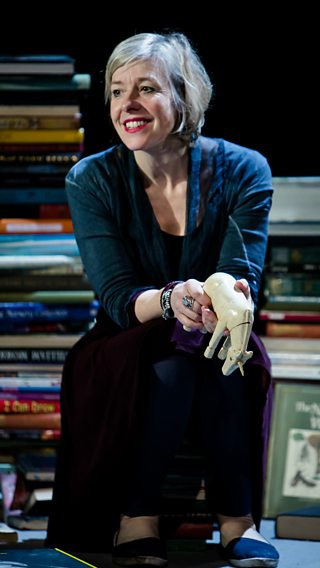
Making up stories with our children will support a lifelong love of words, of stories; of reading…Danyah Miller
I don’t believe that there is a ‘right’ way to tell a story as we all have our own individual style. Mainly I have learnt that being able to tell stories is about confidence which comes large part from a combination of practice, some techniques and having fun!
Sharing stories brings us closer together and we begin to understand each other better. Making up stories with our children will support a lifelong love of words, of stories; of reading…
As we know there are great concerns regarding literacy attainment; in children and adults alike. This doesn’t have to be the case.
In my work, I have witnessed over and again how storytelling, without books, directly impacts on literacy. It plays a crucial role preceding, underpinning and running parallel to children learning to read and write. It also strengthens the imagination, aids confidence and encourages team-work.
Most children tell stories, often chatting a great deal, from a very early age. They will be inspired if we share our stories with them, triggering their imaginations, enthusiasm and desire to tell, before moving naturally into writing, their own adventures.
Before children write a story to enter ‘500 Words’ they will create the story in their imagination. The best way to explore a story is to speak it out loud, share it for the fun of it. In this way the story begins to grow.
Imagination is like a muscle, the more you use it the stronger it becomes.
Stories come in many shapes and sizes - biographical; folk and fairy tales; fables; myths and legends. One of my favourites is Spontaneous Storytelling. Stories are everywhere in this apparent empty space. They reveal themselves when we begin to engage, fully and playfully, to tell a story.
When I’m leading workshops I use lots of different games, techniques and exercises to tap into our imaginations. Here’s one I’d love to share with you.
LET’S PLAY
Gather together a collection of household or everyday objects (eg a stone; toothbrush; ball; candle; spoon; toy car; feather; pine cone) and let each person pick one of the objects.
The first person begins by telling everyone three ‘facts’ about the object
WHOSE IS IT; WHAT IS IT; WHERE DOES IT COME FROM?
This can be factual or wildly imaginative or somewhere in between…
For example “You think that this is just an everyday toothbrush, but this brush actually belongs to the Great Green Galapagos Grasshopper. She uses this brush to clear out the mud on her children’s legs when they come back from…. etc”
The second player asks questions about this object (the storyteller can’t say ‘I don’t know” but has to invent something to answer each question!), or adds to the story using their object. Each player has a turn, asking questions or building on the story until everyone has played and/or the group is satisfied that the story has ended. Then, begin a new story with a new object....
I find that the wilder stories are not always the most interesting. Players develop their imaginations as they play. The first attempts are fun but not necessarily satisfying. I urge you to play the game again and again. It’s incredible how these stories take us on a journey, opening up previously unknown worlds to be explored and enjoyed together.
You could even play the game against the clock - you have just 3 minutes to complete your story!
If in doubt - make it up!
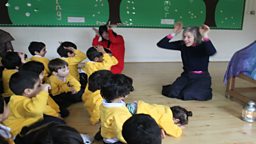
Inspiration On Download by George Sear
I wasn’t very good at reading in primary school. I used to find it hard work and never really discovered that book that made me think, ‘wow, I have to finish this!'

Whenever I get the tiniest idea for a story I jot it down.George Sear
When I did read I always found it hard getting to the end. That was until my Dad challenged me to read Harry Potter and the Deathly Hallows over the year five summer holidays. I carried that book everywhere with me and read it at every opportunity. After six weeks, I’d finally finished it. I remember reading the last chapter aloud with excitement. It was a great achievement for me, plus I’d overtaken my sister at reading!
After that, I dived into the wonderful world of books. I quickly got through the rest of the Harry Potter series and moved on to Cherub soon after (a book series I strongly recommend to teenagers). It sounds like a cliché but I really did see a difference at school. I moved up in year six literacy class and eventually I was in the top set for English, achieving the best grades of any of my subjects. I eventually got an A for my GCSE!
Every now and then I look back and I think how glad I am that I accepted that challenge when I was ten. Without it things would have been a lot different. Not just in the way it helped improve my school work, but for the fun I’ve had too. For example, I might not have had the inspiration and ideas to write a TV show with my Dad, or I may not have teamed up with a friend at the age of fourteen to write an action-adventure story (we’ve just finished the first draft, hooray!).
That’s one of the good things about being an actor and TV presenter: I get a lot of free time and I make the most of it by writing. Whenever I get the tiniest idea for a story I jot it down. I love developing a storyline and complex characters. I believe you should follow your instincts, and when you get that lightbulb moment, that catalyst for a great idea, pursue it. You might regret it one day if you don’t!
Sometimes it’s all too easy to get caught up in social media and smartphones. People assume that’s all us youngsters are about, but I disagree. I could spend all day reading a fantastic book and afterwards I feel inspired, enthralled and bathe in a sense of achievement. After spending a couple of hours writing, like I did for this blog for example, I can’t wait to share my ideas with someone. The same can’t be said for tapping away on my phone playing Angry Birds or scrolling my newsfeed on Twitter. I don’t think you can ever beat a good read. Technology will keep changing forever and become outdated, but a great story will always be a great story!

Ten Killer Tips In Ten Minutes!
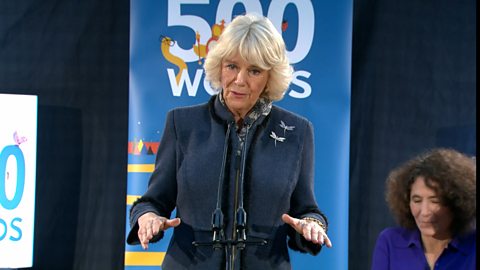
The 500 Words Story Laboratory: Ten Killer Tips In Ten Minutes
Chris, Francesca, Frank & Malorie impress HRH The Duchess of Cornwall with story tips!
Greg James: Get Reading, Get Writing, Get Inspired!
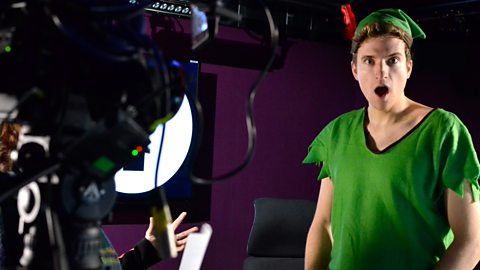
Greg James - Get Reading, Get Writing, Get Inspired!
Radio 1 Dj Greg James talks about why he thinks it’s important to get writing!
Superstar Sam Smith On Writing From The Heart
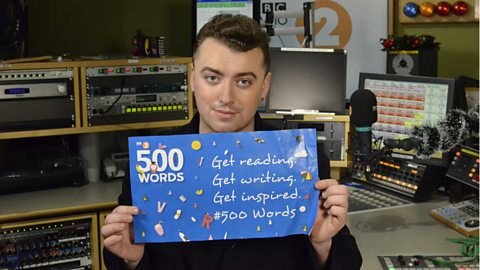
Sam Smith - Get Reading, Get Writing, Get Inspired!
“Money On My Mind” singer, Sam Smith, says emotion and life experience helps him write.
Why YOU Should Bother With Books
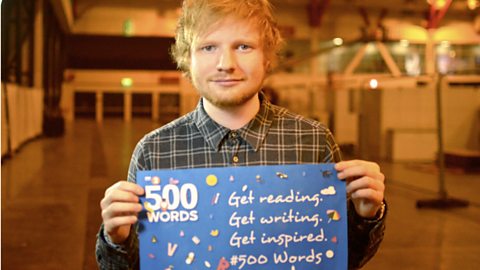
Why YOU should bother with books!
A sensational selection of famous faces reminisce about their reading revelations.
Paloma Faith On Learning Difficulties And Loving Books
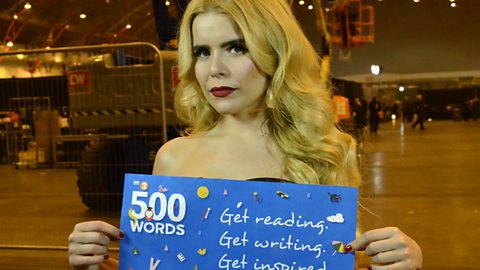
Paloma Faith On Learning Difficulties And Loving Books
Superstar singer Paloma Faith says learning difficulties shouldn't stop you reading.
Anthony Horowitz Reads His Very Own 500 Words Story!
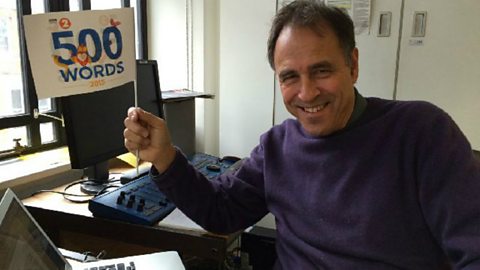
Anthony Horowitz's 500 Words Story!
An exclusive Horowitz horror for 500 Words!
Frank Cottrell-Boyce Answers Your Burning Questions
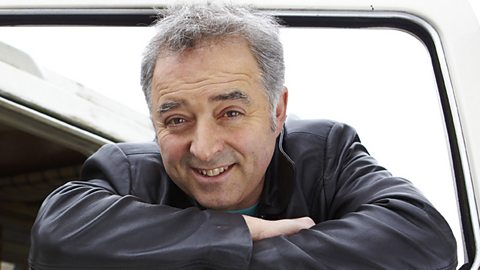
Frank Cottrell Boyce answers writers questions
Frank Cottrell Boyce answers some burning questions about writing 500 Word stories
Charlie Higson's Helpful Hints

Charlie Higson's tips
Charlie Higson explained what he looks out for in 500 Word entries
Taking Time Out For Tommy Sandhu
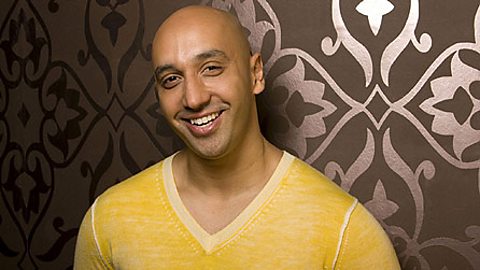
Taking Time Out For Tommy Sandhu
Chris pops over to see our friend at the Asian Network, Tommy Sandhu
Brilliant Barney Harwood On His 500 Words Story

Brilliant Barney Harwood On His 500 Words Story
Blue Peter's Barney Harwood shares behind the scenes gossip of his own 500 Words story.
Marvellous Malorie's Top Tips
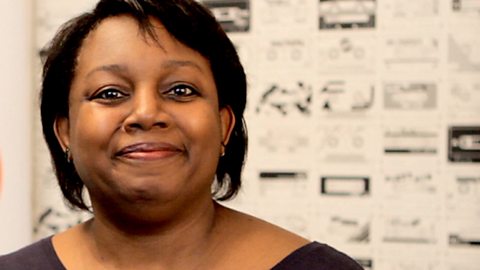
Malorie Blackman
Chris and another of our marvellous judges Malorie Blackman discuss the Story Laboratory
Chris Evans meets Her Royal Highness The Duchess of Cornwall!
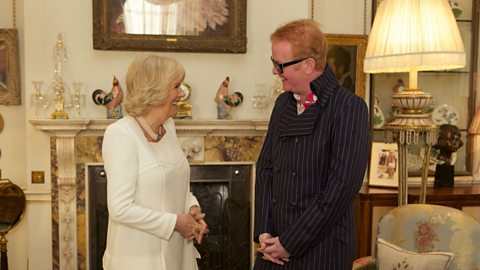
Chris Evans meets Her Royal Highness The Duchess of Cornwall!
*contains flashing images*
Frank Cottrell-Boyce's #500WordsTip
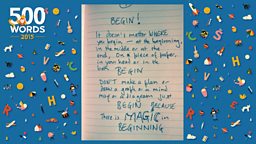
Frank Cottrell-Boyce's #500WordsTips
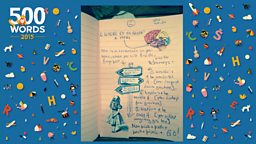
Frank Cottrell-Boyce's #500WordsTips
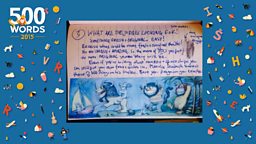
Barney Harwood's Brilliant Binaural Story
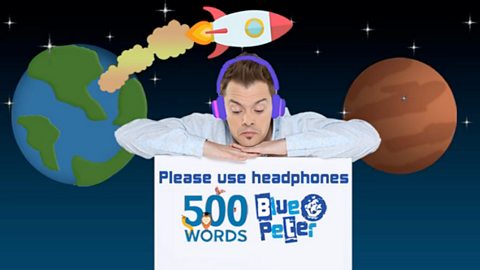
Barney Harwood's Blue Peter 500 Words Story!
The captain of the Blue Peter ship has set anchor at 500 Words again with his own story!
Mr Brown Has A Word With Saturday Live
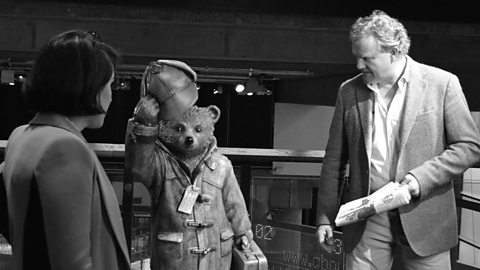
Mr Brown Has A Word With Saturday Live
Paddington's Mr Brown, Hugh Bonneville, tells R4 Saturday Live why 500 Words is GREAT!
Cerys Sets Poetry In Motion on ����ý Radio 6 Music
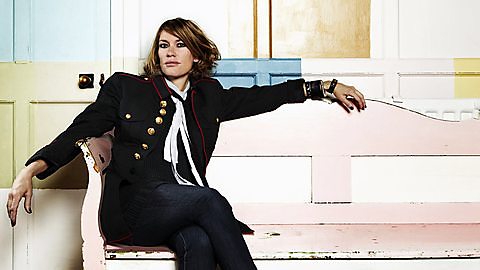
Cerys Sets Poetry In Motion on ����ý Radio 6 Music
Cerys Matthews has a super special reading of Emily Stevens story from 500 Words 2014!
